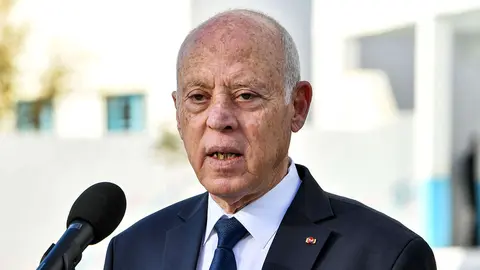Kais Saied re-elected president of Tunisia by absolute majority
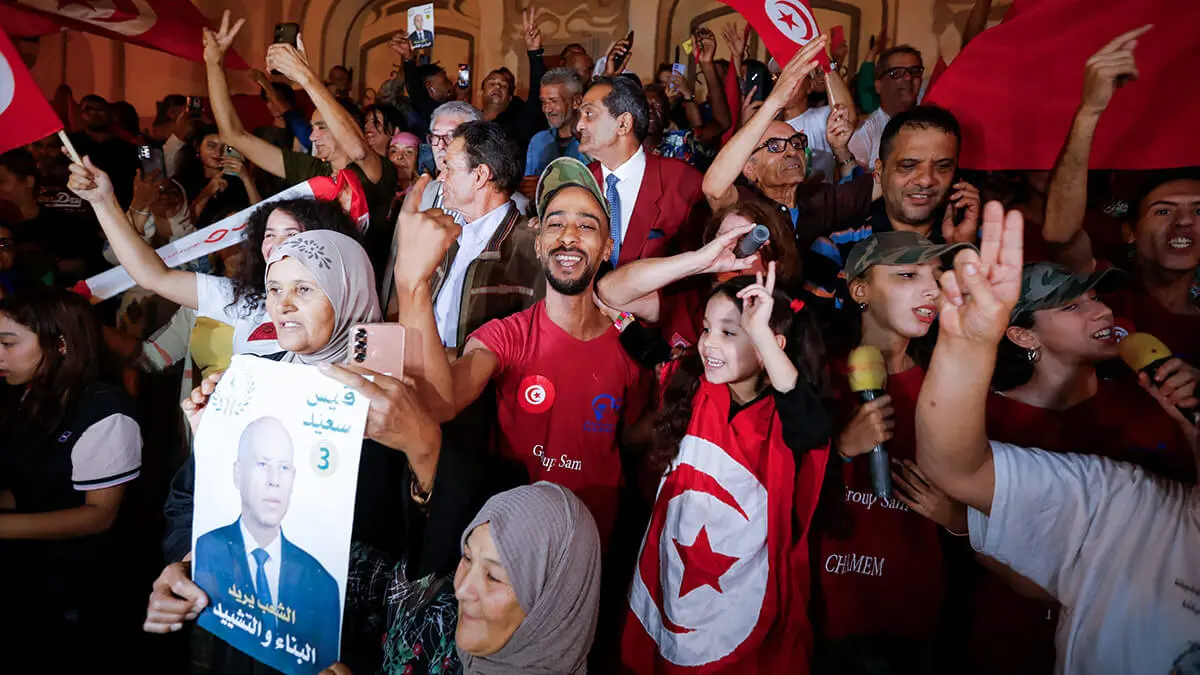
The streets of Tunisia were filled with supporters after the results of the presidential election showed that the provisional winner was the current president, Kais Saied, in an election in which more than 14 contenders were left out of the race, three of them last month.

The results, broadcast on television by the head of the Hassan Al-Zarqoni Foundation, were the starting signal for the euphoria. The data showed a clear victory for the incumbent over the two other candidates, one of whom is in jail for forging signatures.
Farouk Bouaskar, head of the Independent High Authority for Elections (ISIE), put the turnout at 2,704,155 people, 27.7% of the total. This is a drop of 21% compared to 48.89% for the 2019 elections.
The percentage of Tunisians living abroad who voted decreased to 16.3%. Of the total number of participants, only 6% are between 18 and 35 years old. The percentage of workers who voted for Saied stood out, with 92% voting for the candidate Saied.
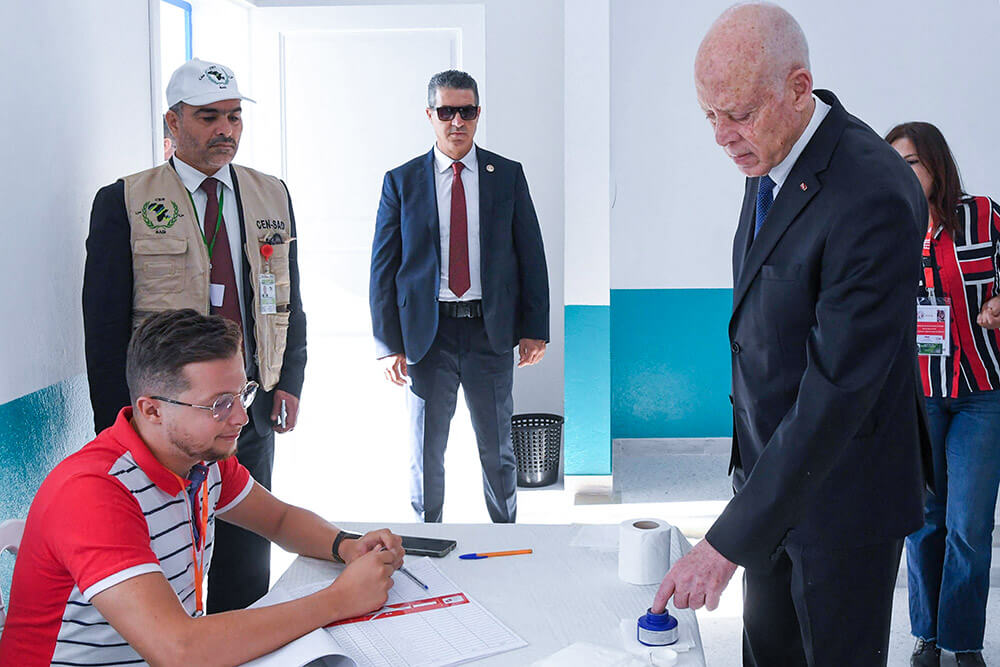
More than 9.7 million people were called upon to exercise their right to vote in the third presidential election since the Arab Spring, when a transitional process began. However, the ISIE has assured that official results will be available by Wednesday.
According to the first data provided by the private agency Sigma Konsai, Kais Saied obtained the 89.2% of the votes, followed by former MP and independent candidate Ayashi Zemmal, imprisoned for 14 years just hours before formalising his candidacy due to the falsification of signatures, with 9.6%, and the secretary general of the People's Movement, Zouhair Maghzaoui, who until a month before presenting his candidacy was also in prison, with 3.9% of the votes.
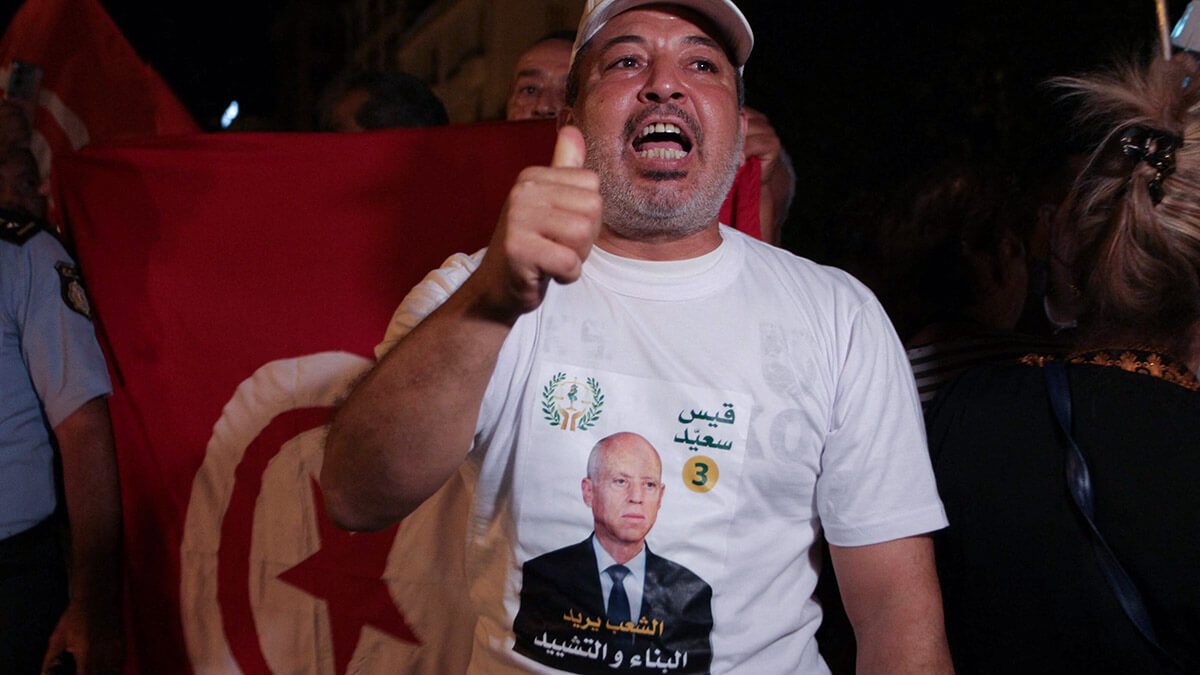
These results, if confirmed, would cancel out the possibility of a second round, unlike in the previous elections, when a second round was necessary. However, the Tunisian Association for Integrity and Democracy in Elections (ATIDE) has denounced malpractices during the electoral process. All of this without hard evidence.
After initial analyses and pending possible confirmation, Saied's campaign manager, Nofal Saeed, announced that the number of voters who opted for the president was virtually unchanged from the 2019 data. He also highlighted that the level of trust placed in Saied was very similar.
According to Nofal Saeed, the re-election is a further step in Tunisia's political stability. He said that acceptance of the results was synonymous with progress and a better future for the country.
.
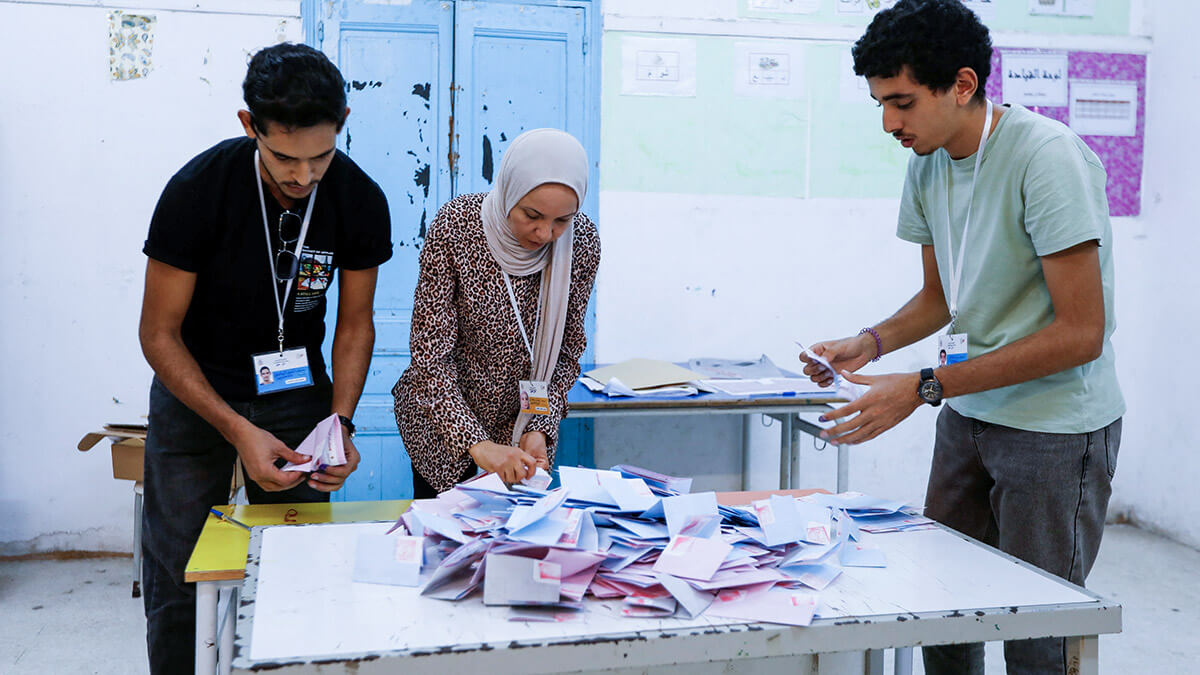
Although after the end of the Arab Spring Tunisia was a country where democracy has grown, it is a state that, since Saied's arrival, has suffered some regression. Since the reform of the constitution in 2021 to give full powers to the presidency, Tunisians' rights have diminished over time. This was denounced by the opposition as a coup d'état, despite being voted democratically and passed by the competent bodies.
With one of his political rivals imprisoned during the campaign, the landslide victory of Tunisia's current president has come as no surprise to international analysts. Despite his strong support, human rights organisations such as Human Rights Watch have reported that more than 170 people are being detained in Tunisia for ideological reasons or for exercising their fundamental rights. Among those detained are Rached Ghannouchi, head of the opposition Ennahda party, and Abir Moussi, head of the Free Destourian party.
The low turnout is an unflattering symptom of the situation in Tunisia. Everything seems to indicate that Tunisians have chosen the path of abstention to protest against the government. Despite accusations of ‘lack of transparency and legitimacy’, the opposition did not raise its voice in favour of abstention, a sign that change is far off.


